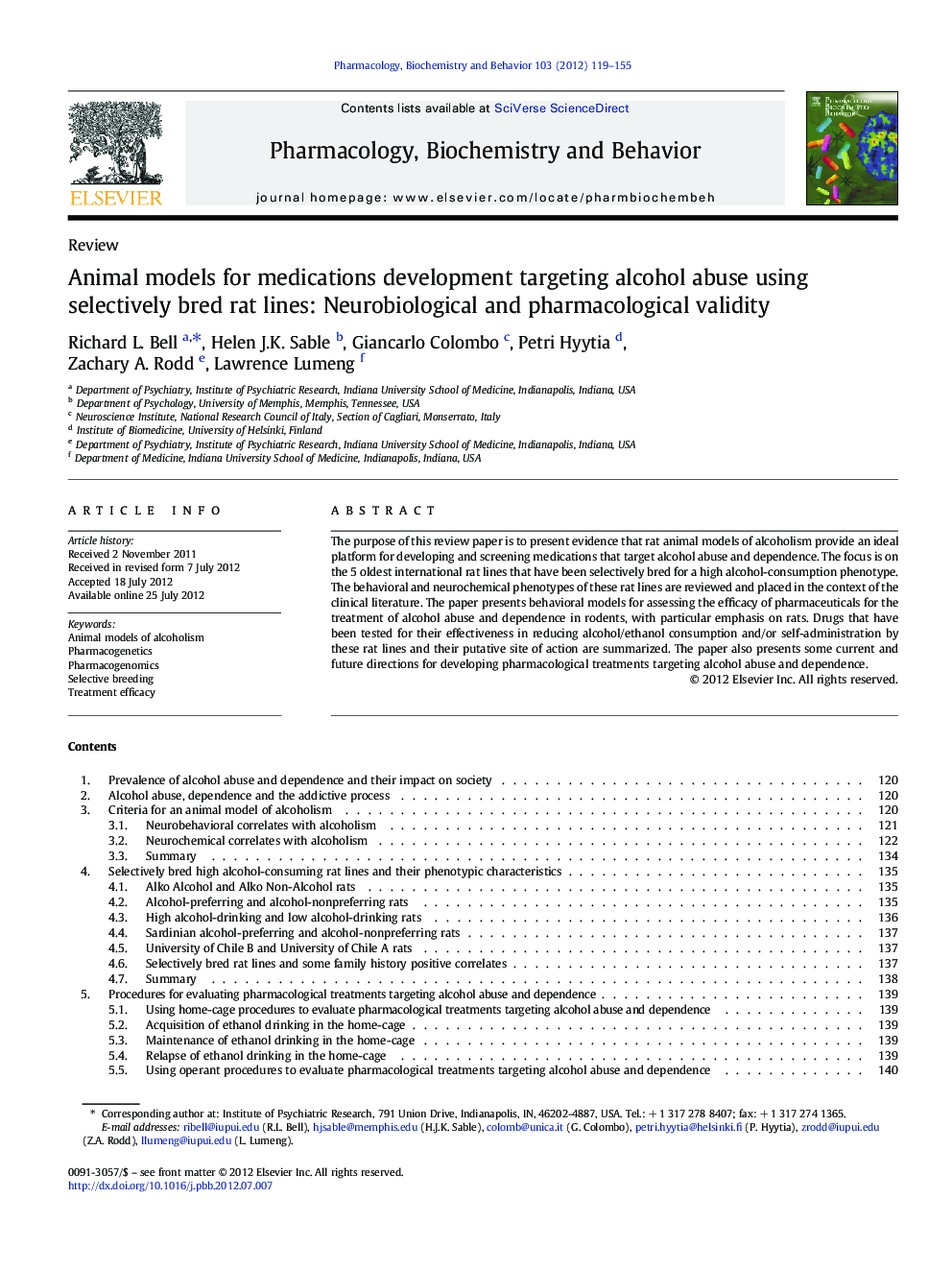| کد مقاله | کد نشریه | سال انتشار | مقاله انگلیسی | نسخه تمام متن |
|---|---|---|---|---|
| 2013079 | 1067084 | 2012 | 37 صفحه PDF | دانلود رایگان |

The purpose of this review paper is to present evidence that rat animal models of alcoholism provide an ideal platform for developing and screening medications that target alcohol abuse and dependence. The focus is on the 5 oldest international rat lines that have been selectively bred for a high alcohol-consumption phenotype. The behavioral and neurochemical phenotypes of these rat lines are reviewed and placed in the context of the clinical literature. The paper presents behavioral models for assessing the efficacy of pharmaceuticals for the treatment of alcohol abuse and dependence in rodents, with particular emphasis on rats. Drugs that have been tested for their effectiveness in reducing alcohol/ethanol consumption and/or self-administration by these rat lines and their putative site of action are summarized. The paper also presents some current and future directions for developing pharmacological treatments targeting alcohol abuse and dependence.
⺠Criteria for an animal model of alcoholism and diagnostic criteria for alcoholism. ⺠Selectively bred rat lines and behavioral correlates with alcoholism. ⺠Selectively bred rat lines and neurobiological correlates with alcoholism. ⺠Home-cage and operant chamber techniques for testing ligands/compounds. ⺠Compounds and ligands tested in selectively bred rats thus far.
Journal: Pharmacology Biochemistry and Behavior - Volume 103, Issue 1, November 2012, Pages 119-155